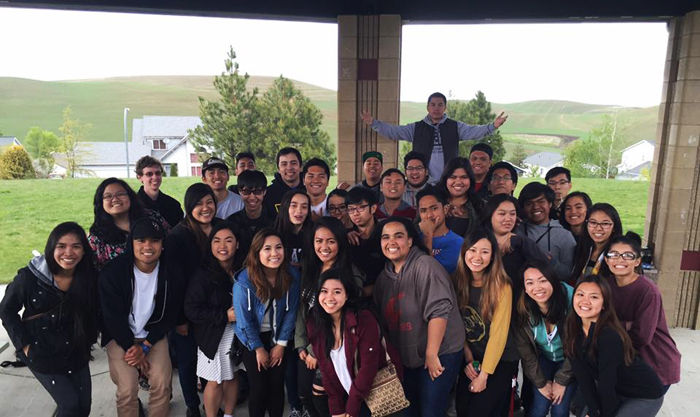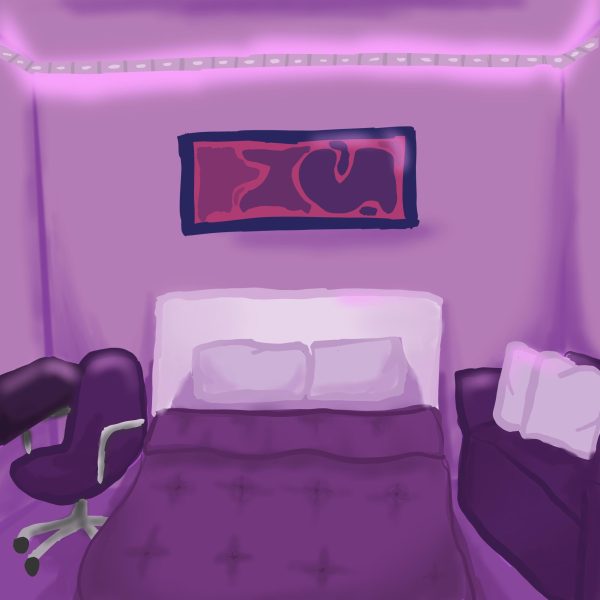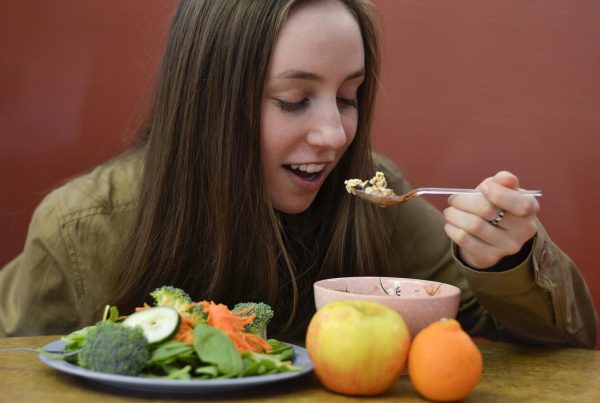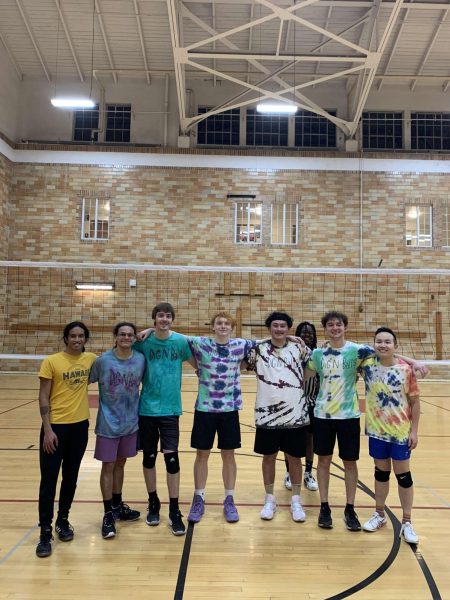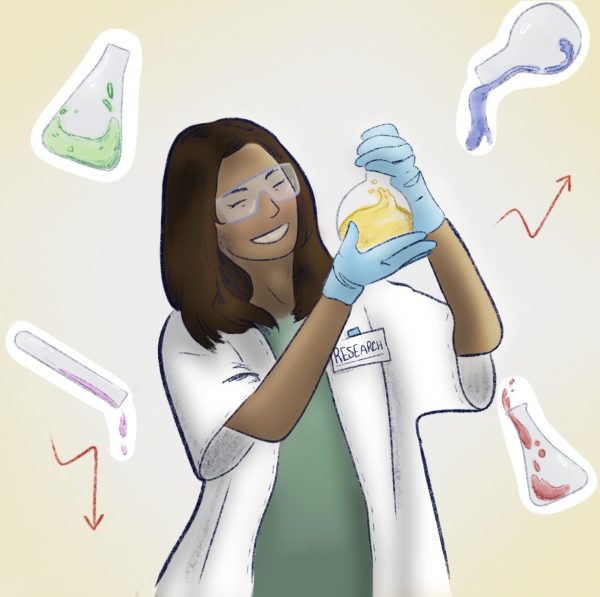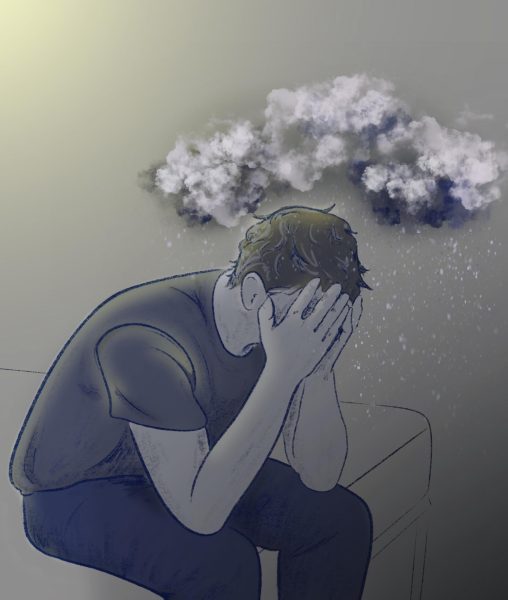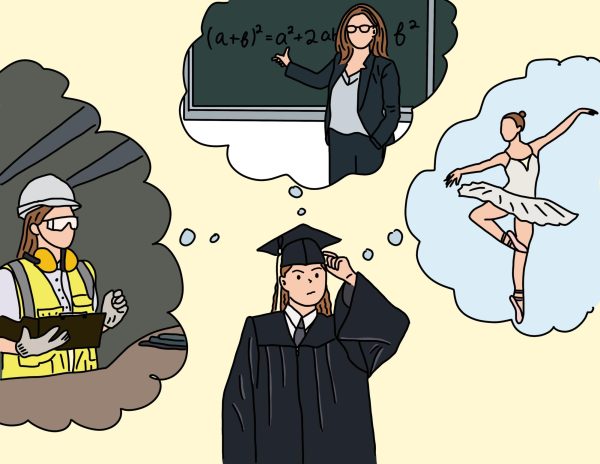Live, love, learn and eat good Filipino food
May 2, 2016
A common question asked after an academic year is: what did you learn?
For my last column of my inaugural year, I wish to share my answer with all of you. I learned to eat, live and love, and it is all thanks to my pamilya, my FASA (Filipino American Student Association) family.
{{tncms-asset app=”editorial” id=”263d41a0-101d-11e6-9c82-537f1a033a08″}}
One of the most rewarding aspects of being a journalist is meeting new people and making connections. I wrote an article on Filipino Culture Night earlier this year; it was the first time I interviewed people and it became the initial steps for me discovering a whole new world vastly different than what I knew.
Shortly after the article, I started attending more FASA meetings; not FAFSA as I would accidently pronounce it for the first couple months.
The driving factor behind the attendances was food. FASA held several food fundraisers throughout the year, the main reason my stomach was heavier and wallet was lighter.
My introduction to Filipino food was an impeccably made leche flan, sweet, soft and comforting. Biko, sweet sticky rice resembling square shaped meteorites in my mind, is extraterrestrial and unfamiliar.
My lifetime of eating and amassing food knowledge prepares me for just about any eating situation, but this was a first. I was out of my comfort zone and that ignited an insatiable desire to eat more and learn about Filipino culture.
As someone who walks on a tightrope in terms of their ethnic identity, it can be difficult at times to fit in somewhere. Throughout my life, I labeled myself many different identities from Chinese, Chinese American, Asian American, Chinese adoptee, Asian adoptee, twinkie (yellow on the outside, white on the inside) and a gray fluid fog of sorts.
I believe that food can be building blocks for one’s identity, and through eating and immersion of another culture I found another label.
In a sense, it becomes a new life because I am not the man I was before college, or the man I was in any of those points in time where I labeled myself different things. I can honestly say, I can’t identify myself as Daniel without my Filipino heritage, a “heritage” that was entrusted to me every time I was served a plate of food.
To me, that is a means of genuine and selfless giving; to say sit down and say let me share my food with you, let me share my history, let me nourish you and bring you to my home.
It is this mentality that makes me prone to buying everyone food with my RDA. It was my way of giving back to people that took care of me.
My favorite food from FASA was pork sinigang, a sour soup with a tamarind base. I recall personally receiving the pork rib portion. I saw this as a privilege because an outsider was gifted with one of the best parts of the animal.
It was in that moment I felt I was one of them. I may not be born Filipino or have even been there, but I now consider it a learned part of my identity. I was given a new life and inherited my Filipino culture that I didn’t even know I wanted or needed. I have even found myself watching episodes of The Voice Philippines and falling spellbound to their singing voices, but also their spoken language of Tagalog and Taglish (a mix of English and Tagalog).
My mother has often said I equate food with love. I can’t disagree with her on this and it is a testament to my desire to enter the hospitality world.
I think serving others is one of the most compassionate acts one can do. When I was served my food by FASA, that is when I felt cared for. They have done a stellar job of feeding me and in my eyes that is how they are speaking a language of love to me.
Food is a primordial thing necessary for survival, but it is also its own language, a language that stems from love and is universal and paves a common ground for every single person on the planet.
This all cumulated at the end of the year FASA event. It was a potluck, sendoff and celebration. Potlucks are this beautiful gathering of food and friends. It is a vulnerable sharing of one’s culture and story. When you are perusing at the table, instead of just asking what is that?
Ask how the dish was made, why they chose to bring it, or what its role is in that person’s story.
The moral of the story is to eat. We have a chant in FASA: sige, sige, sige, which means go, go, go! Spend a summer eating as many different kinds of food you can. Go to as many cultural events as you can and throw yourself into it. Maybe you’ll find a piece of yourself you never knew or maybe you’ll just eat really well. Just eat, live and love. Just sige, sige, sige.


